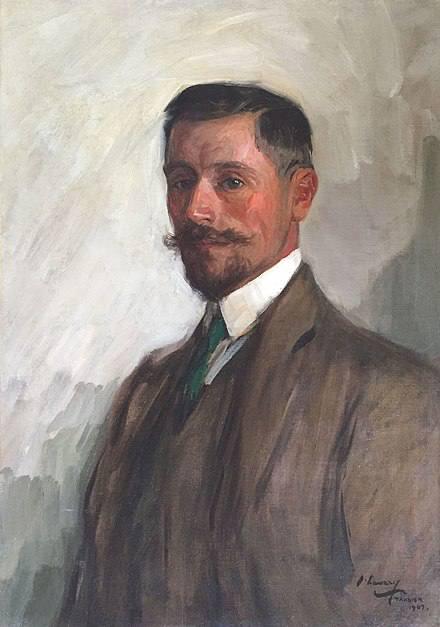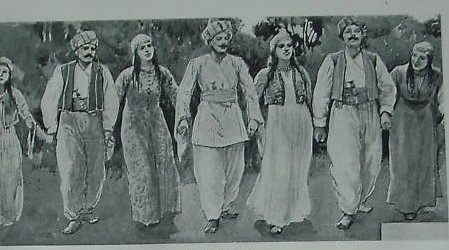European journalists and orientalists have visited other countries, especially the Middle East, for various purposes. Sometimes they went to these countries for trading purposes, sometimes for political affairs, and even espionage, and often for tourism.
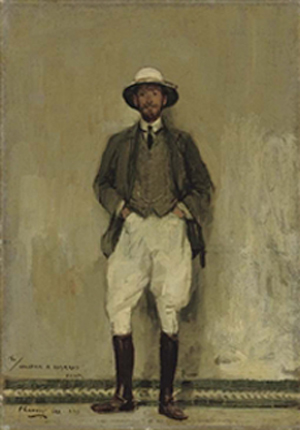
However, some of them have tried to write memoirs and social issues of those countries, from their own perspective, to give a picture of the cultures, way of life, economic conditions, agriculture, politics, and life in general. Kurdistan in all its parts, due to its geographical location and division between several states and the presence of favorable climate and special nature, has been one of the goals of foreign tourists, and many books and articles have been written by orientalists about the Kurdish people. Some tourists have been involved in people’s lives, and this interaction has reached the level of friendship and have published good writings about the Kurds and some others have viewed Kurds from a Colonialist perspective. Others have top-down views and consider the people of these areas worthless, and regressed compared to their people. There are many examples of both directions and in this section, I would like to present the views of an English writer and traveler who wrote about Kurdistan in 1896 and visited both southern and eastern Kurdistan. In other words, when he first stepped into Kurdistan, he had a certain attitude, and later, when he gradually became interested in the people and their customs, his language and attitude changed to some extent.
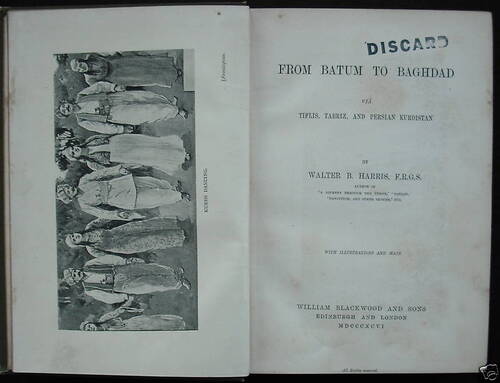
Walter Burton Harris was a journalist, author, and tourist born in 1866 in London. He was the son of a ship dealer. He was a graduate of Cambridge University and began traveling at the age of 18 while contributing to The Times. In 1896, Walter Harris traveled to Kurdistan, and in a book entitled "From Batum to Baghdad" he described the Kurdish villages he passed through and described the theater of seeing the Kurds, their culture, speech, and singing with valueless and humorous advice:
Early in the morning, after walking along the river, we reached another nobleman's village two hours later. The turn towards Iranianization was even greater than in the village of Mirade. Because here, although their wives do not stay indoors and do not wear masks, they are wearing Iranian clothes. The result is that you cannot imagine anything more ugly. The women of the northern part of Iran dress in such a way that you have to be very grateful to their husbands who at least do not allow their wives and daughters to come out too much. Over the “socks with flounces,” they have thrown a short fur coat that looks like a second-class ballet dancer's dress in a low-class theater. His wife wears an often dirty square shirt with bad gold tape around the edges, covering her neck, waist, and upper body, reflecting the unpleasant dress of northern Iranian women. The clothes were really inconsistent in the Kurdish village; it was a village with a mud house and a dance group that had gathered to see a European man and this play seemed a second-class theatrical play.
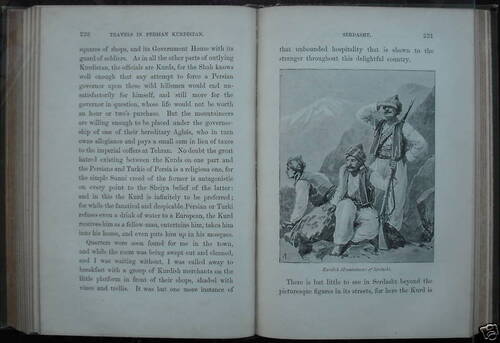
Walter Harris has a completely superior view of the villagers and portrays them as regressed and funny people who were gathered to see him making him think of his identity to be of a higher value rather than theirs. However, elsewhere in his book, when he arrives in the Karand region in East Kurdistan, he describes the daily life of the people of that region in a different way:
“We saw nothing but a picture of Karand under the moonlight, for we went to a temporary shelter built for our horses, and began to eat under the shade of the trees that pushed against the wooden arrows. The theater was as new as any other temporary camp in the east. Some Kurdish and Arab caravans had lit fires in the vastness and cooked and warmed themselves with the fires. On the other side, the leafy heights of the trees seemed to be dark bags, shining in the sky under countless stars. Occasionally, one of the members of the caravan would sing the sad melody that can be heard in most parts of Kurdistan.”
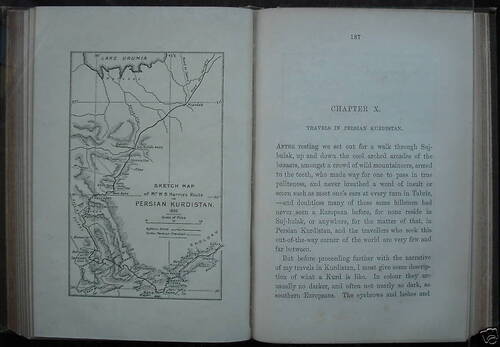
In this section, Walter Harris seems to have become more familiar with the Kurdish people, customs, and rituals after arriving in the southern part of the East of Kurdistan and he seemed to have understood the Kurdish language better and seen the reality of their life at that time. The work of the oriental, such as lighting fires, and cooking, is no longer taken for granted by the English tourist but is new and interesting. On the other hand, it is a poetic theater and perhaps shows some tragedy of the unknown suffering of the Kurdish people under the moonlight. Although he does not know Kurdish, he is familiar with the sad voice and song of the singer especially, the sad feeling he gets from the caravan. He generalizes it to other voices he had heard in Kurdistan.
Harris’s perspective on the Kurdish people as an Eastern person in the eyes of the West is a low and sometimes compassionate view that is very common among tourists and is not specific to Kurdistan but also includes most Eastern countries such as India and China.
